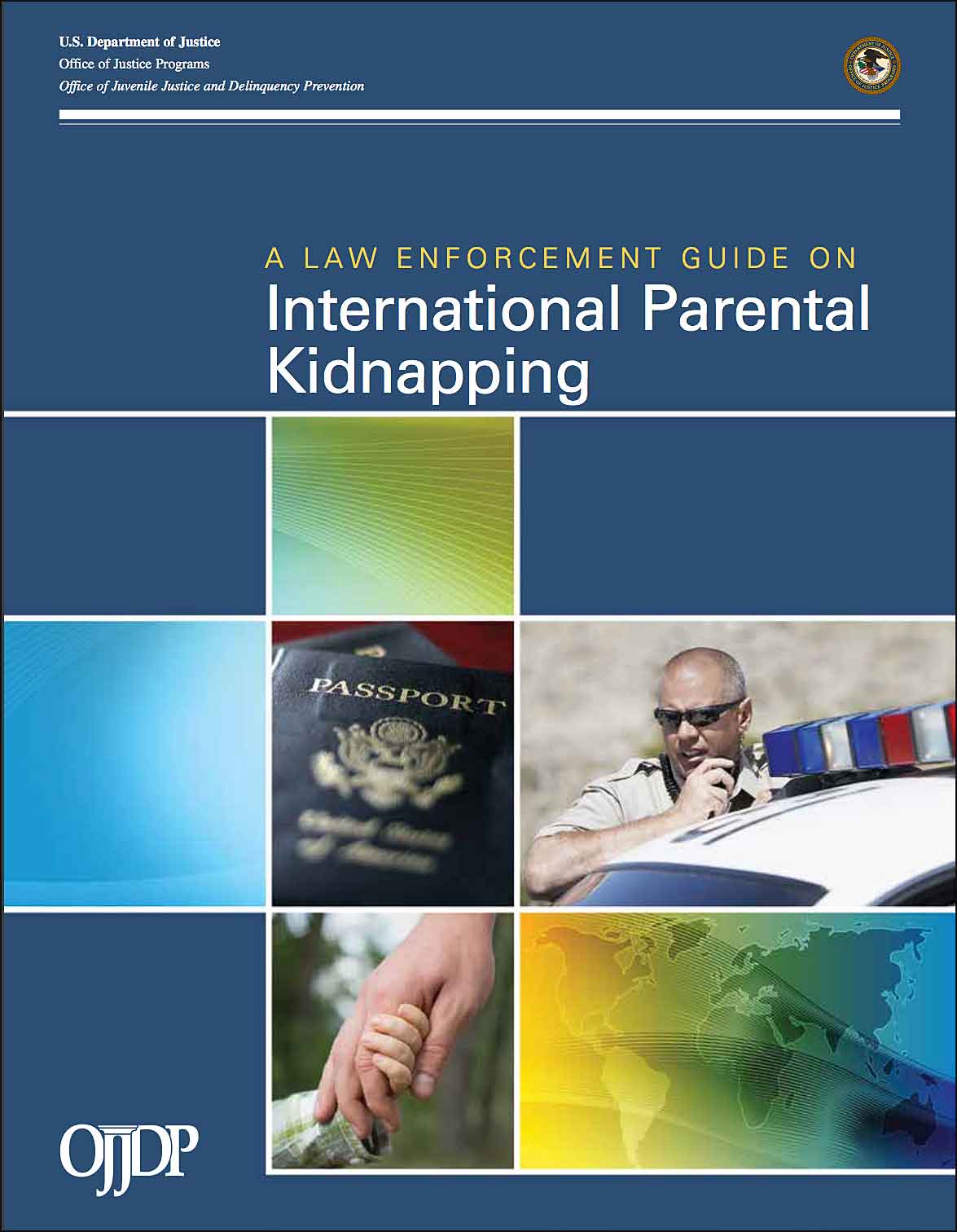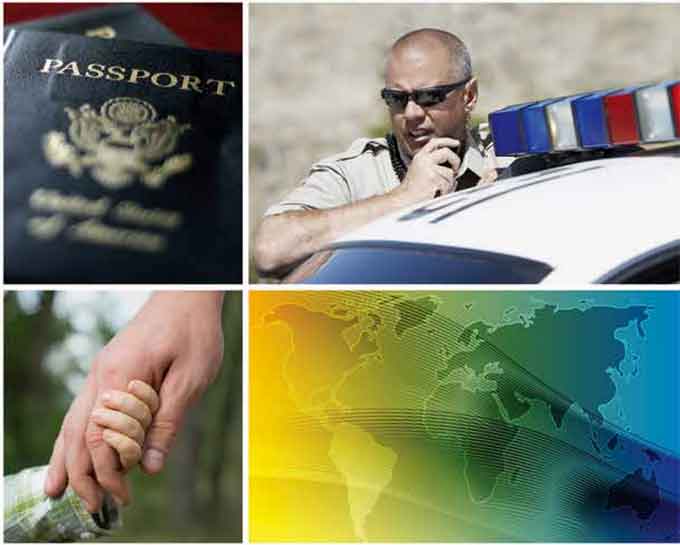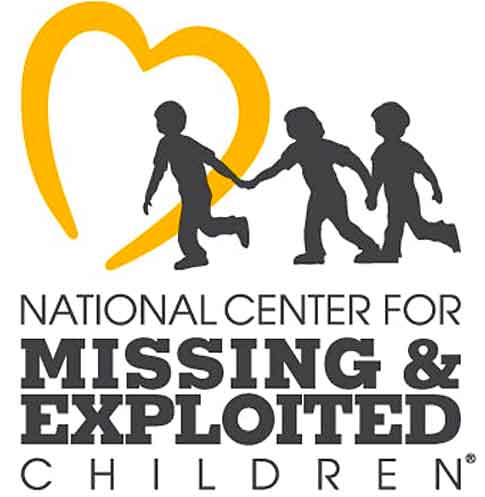
The Office of Justice Programs’ Office of Juvenile Justice and Delinquency Prevention (OJJDP) has published new guidelines to help law enforcement prevent and respond to cases of international kidnapping of a child by a noncustodial parent.
In 2017 there were more than 900 cases of international kidnapping of children across 59 countries reported to the U.S. Department of State’s Office of Children’s Issues.
Law enforcement agencies play a critical role in the prevention and resolution of international parental kidnapping.
International parental kidnapping, whether as a result of a parent or other person taking or wrongfully retaining a child with the intent to obstruct the lawful exercise of parental rights, merits the full and timely attention of law enforcement.
The child (or children) should be considered to be in danger, especially when the person taking or retaining the child has previously threatened to abduct or harm the child or themselves, or is otherwise unstable.
In these cases, the law enforcement responsibility is much broader than the simple act of retrieving the child.

A Law Enforcement Guide on International Parental Kidnapping describes law enforcement’s role as initial responders and investigators of kidnapping crimes, discusses applicable laws and legal remedies for child recovery and reunification, and outlines considerations for criminal prosecution and extradition of offenders.
Officers, and the agencies they represent, who respond promptly, professionally, and efficiently to reports regarding what many term “family kidnappings” become, in effect, a means of protection for the child (Findlay and Lowery, 2011).
This guide is for local, state, and federal law enforcement authorities who respond to international parental child kidnapping cases.
It suggests methods for preventing international child kidnappings by family members; describes the role of law enforcement as the initial responder and investigator; discusses applicable laws, treaties, and legal remedies for child recovery and reunification; and outlines considerations for criminal prosecution and extradition of offenders.
The guide covers:

- Risks and effects of the problem, as well as scope and remedies
- Law enforcement interventions for preventing kidnapping
- Initial law enforcement response
- Interdiction: How to stop a kidnapping in progress
- The continuing investigation in the United States and abroad
- Federal resources that can aid in the investigation
- Criminal charging options
- Extradition
- Child recovery mechanisms
- Reunification and recovery
- Law enforcement liability concerns
Before coordinating an investigation, it is critical to identify federal and state resources.
Doing so prepares law enforcement to respond effectively to international parental kidnapping cases.
TITLE: A Law Enforcement Guide on International Parental Kidnapping
AUTHORS: OJJDP and the Federal Agency Task Force on Missing and Exploited Children
WHERE: https://www.ojjdp.gov/pubs/250606.pdf

The Office of Justice Programs, headed by Acting Assistant Attorney General Laura L. Rogers, provides federal leadership in developing the nation’s capacity to prevent and control crime, administer justice and assist victims.
The Office of Justice Programs (OJP) has six bureaus and offices:
- The Bureau of Justice Assistance
- The Bureau of Justice Statistics
- The National Institute of Justice
- The Office of Juvenile Justice and Delinquency Prevention
- The Office for Victims of Crime, and
- The Office of Sex Offender Sentencing, Monitoring, Apprehending, Registering and Tracking.
To Learn More about OJP and its components, please visit www.ojp.gov.
The Department of State (DOS) has no higher priority than to safeguard the welfare of U.S. citizens abroad, the most vulnerable of whom are children.
We believe that a court in the country of a child’s habitual residence is, in most cases, best placed to make decisions on matters of custody and access.
Our Role
The Office of Children’s Issues serves as the U.S. Central Authority for the Hague Abduction Convention (Convention), an international treaty that offers a civil remedy to resolve international parental child abduction cases.
In that capacity, the Office of Children’s Issues leads U.S. government efforts within the Department of State and with other U.S. government agencies to prevent international parental child abduction, assist children and families involved in these abduction cases, and promote the principles of the Convention.
If You Believe an Abduction is in Progress:
If you believe your child is being abducted internationally by another family member and has not yet left the United States, you can call the Office of Children’s Issues at any time at 888-407-4747.
Steps to Stopping an Abduction in Progress
24 Hours a day, contact us at 1-888-407-4747 or via e-mail at
If you have reason to believe that your child is in the process of being abducted by a parent, legal guardian, or someone acting on their behalf, there are steps that can be taken to prevent the abduction.
Immediate steps you can take include:
CONTACT THE OFFICE OF CHILDREN’S ISSUES, PREVENTION BRANCH AT 1-888-407-4747
- OBTAIN A COURT ORDER:
- A court order is vital to preventing the departure of a child.
- You can retain an attorney to discuss your options.
- Law enforcement may not be able to act unless there is a court order that prohibits the child’s travel outside of the United States.
- Court orders preventing the removal of the minor child from the court’s jurisdiction, the state, or the country will give law enforcement more authority to prevent abduction.
- For information regarding prevention under the International Child Abduction Prevention and Return Act visit here and also review our page titled Law and Regulations.
- CONTACT LAW ENFORCEMENT:
- Contact law enforcement immediately and inform them of any court orders and the potential for international parental child abduction.
- Request that law enforcement enter information about your child as missing person in the National Crime Information Center (NCIC) as soon as possible, so that your state’s troopers or highway patrol can widen the search for your child.
- When working with any law enforcement official ask for the officer’s full name, e-mail, fax number, direct phone number, a dispatch line with 24 hour coverage, and backup officer.
- CONTACT AIRPORT POLICE AND THE AIRLINES:
- Contact the airlines and airport law enforcement that is stationed at the departing airport, if known.
- Because the United States has no exit controls, abductions can only be prevented if the appropriate authorities at ports of exit are made aware of courts orders that prohibit travel prior to departure.
- When contacting airlines, ask to speak with an airline corporate security officer, explain the situation, be ready to prove you have a parental relationship to the child, and ask if there is a reservation under your child’s name.
- This can help mobilize efforts to stop child abductions.
If Your Child Has Been Abducted Overseas, We Can:
- Give you information about various resources that may assist you in pursuing the return of, or access to, your child,
- Provide you with a list of attorneys in the country where your child is located,
- Answer questions from local and federal law enforcement about the Department’s role in international parental child abduction cases, and
- If your child has been abducted to or retained in a country that is a Convention partner country, regardless of you or your child’s citizenship or legal status, forward a completed Convention application, and monitor the case throughout the foreign administrative and legal processes.
If Your Child Has Been Abducted Overseas, We Cannot:
- Provide you with legal advice, recommend a specific course of action, or represent you in court,
- Guarantee the return of, or access to, your child,
- Take custody of your child,
- Break any laws in the United States or in a foreign country,
- Pay legal fees, court costs, or any other fees associated with court cases, or
- Provide you with lodging.
Learn More…
From the National Center for Missing and Exploited Children
(The National Center for Missing and Exploited Children’s mission has been to help bring missing children home. To help fight child predators, promote prevention, combat child sexual exploitation, and assist law enforcement as they fight child sex trafficking. Courtesy of the National Center for Missing & Exploited Children and YouTube. Posted on Mar 17, 2015.)
INTERNATIONAL FAMILY ABDUCTIONS
The National Center for Missing & Exploited Children® (NCMEC) intakes reports about missing children, including children who have been abducted, wrongfully retained or concealed by a parent or other family member outside of the U.S. NCMEC also provides technical assistance regarding the prevention of international family abductions.
For more information about the services NCMEC can provide to searching families and law enforcement in cases of international family abduction visit the Missing Children section.
Hague Convention on the Civil Aspects of International Child Abduction
The United States is a signatory to the 1980 Hague Convention on the Civil Aspects of International Child Abduction, (the “Hague Convention”), an international treaty that establishes a civil mechanism to ensure the prompt return of children wrongfully removed to or retained outside their country of habitual residence.
From 1995 to April 2008 NCMEC fulfilled the functions of the U.S. Central Authority under the Hague Convention on “incoming cases” in which a parent abducts a child into the U.S. from a Treaty Partner Country.
The U.S. Department of State assumed primary responsibility over incoming Hague Convention abduction cases in April 2008; however, NCMEC continues to provide technical assistance and resources to parents, attorneys, judges and law enforcement officials involved in incoming Hague Convention cases.
NCMEC also continues to maintain the International Child Abduction Attorney Network (ICAAN), a network of attorneys who agree to consider pro bono representation in family abduction matters of all kinds, including Hague Convention and non-Hague Convention family abduction cases.
Federal laws
- Federal law (42 U.S.C. § 5772) defines a “missing child” as “any individual less than 18 years of age whose whereabouts are unknown to such individual”s legal custodian.”
- Regardless of the reason why a child goes missing, federal law requires law enforcement agencies to respond in a specific way.
- Federal law prohibits law enforcement agencies from establishing or maintaining a waiting period before accepting a missing child report (42 U.S.C. § 5780).
- Federal law also requires law enforcement agencies to enter the missing child’s information into the FBI’s National Crime Information Center database and state law enforcement system database within two hours of receiving a missing child report (42 U.S.C. § 5780).
- The federal International Child Abduction Remedies Act (ICARA) (42 U.S.C. §§ 11601-11610) implements the Hague Convention and authorizes state and federal courts to hear cases under this treaty when a child has been unlawfully brought into or retained in the United States.
- The International Parental Kidnapping Crime Act (“IPKCA”) (18 U.S.C. § 1204 ) makes it a crime to remove or attempt to remove a child younger than 16 years old from the U.S. or to retain a child who is in the U.S., with the intent to obstruct the lawful exercise of parental rights.
- Congress has clarified, through the Extradition Treaties Interpretation Act of 1998, that U.S. authorities shall interpret the term “kidnapping” to include parental kidnapping in any criminal extradition treaty to which the United States is a party.
The Fugitive Felon Act (18 U.S.C. § 1073) authorizes federal authorities to assist with the apprehension of state law fugitives, including those charged with parental kidnapping, through the issuance of a federal Unlawful Flight to Avoid Prosecution (UFAP) warrant.
State laws
Family abduction is recognized as a crime in every state, although individual state criminal laws vary widely.
Under state law family abduction is described by a variety of names including custodial interference, custody deprivation, child stealing and parental kidnapping.
The basic elements in the state crime of family abduction are typically the wrongful taking or retention of a child in violation of a court order or other law, without a valid defense to make the conduct legal.
For a comprehensive summary of state criminal custodial interference laws, refer to compilation of “Parental Kidnapping Statutes” located on the website of the National District Attorneys Association (NDDA).
The Uniform Child Custody Jurisdiction and Enforcement Act (UCCJEA) has been adopted as state law by nearly every state and territory in the U.S.
The UCCJEA provides clearer standards for the exercise of jurisdiction over child custody cases among the states and provides a specific, effective mechanism for enforcement of out-of-state custody orders, including custody orders from another country.
The Uniform Child Abduction Prevention Act (UCAPA) was introduced in 2006 to help courts identify children at risk of domestic and international abduction and provide numerous prevention measures a court can incorporate into a custody order.
More than 10 states have adopted the UCAPA as state law and several other states have pending UCAPA legislation or enacted their own abduction prevention statutes.
For a comprehensive summary of state statutes and case law related to family abductions and missing children see NCMEC’s guidebook titled Family Abduction: Prevention and Response and refer specifically to the state-by-state legal appendix, which also includes international abduction prevention information.
Other resources
For additional information about issues relating to international family abductions, you may want to review the following resources:
- State Department Office of Children’s Issues
- Annual Reports on Compliance with the Hague Convention, U.S. Department of State (1999-Present)
- State Department, Office of the Legal Advisor, Annual Report of all “Treaties in Force”
- Hague Conference on Private International Law
- INCADAT
- Law Library of Congress, Global Legal Monitor
Legal technical assistance
NCMEC provides legal technical assistance concerning international family abduction to parents/guardians, the attorneys who serve them, law enforcement and judicial officials including:
Information regarding possible referrals to assist with the prevention of and response to international family abduction.
Resources and assistance for attorneys representing parents/guardians and children.
Country-specific information and statistics regarding risks related to international family abduction and legal mechanisms for recovering a child abducted internationally.
 Amicus briefs about particular issues that NCMEC is specially situated to address given its mission.
Amicus briefs about particular issues that NCMEC is specially situated to address given its mission.
For additional information about NCMEC’s legal resources concerning international family abduction contact NCMEC at 1-800-THE-LOST® (1-800-843-5678).
As the nation’s clearinghouse & comprehensive reporting center for all issues related to the prevention of and recovery from child victimization, NCMEC leads the fight against abduction, abuse, and exploitation – because every child deserves a safe childhood.
Learn More…
Joint-Child Abduction Rapid Deploy Team Dev’t Training (Multi-Video)

















